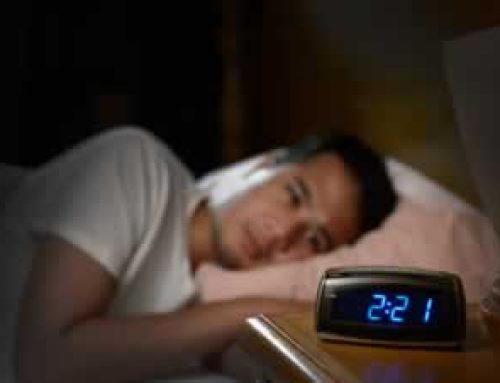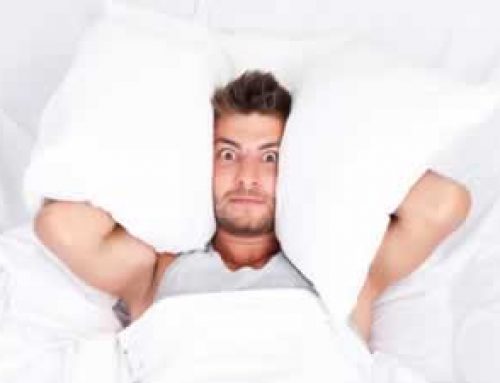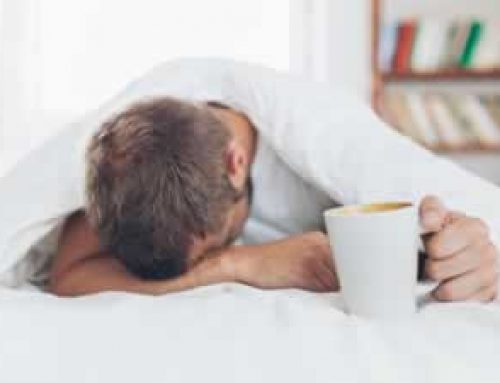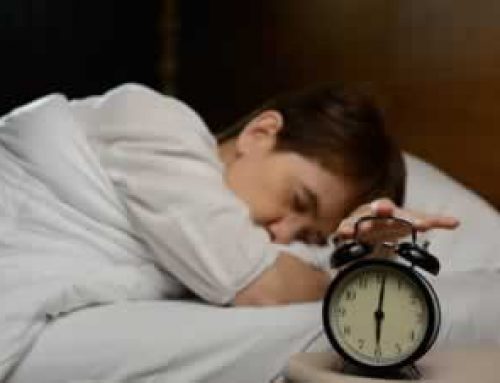Insomnia: Symptoms, Causes, Types and More
We have all experienced a restless night filled with tossing and turning and stressing about when you will finally fall asleep. While restless nights happen from time to time, it can become a problem if these nights occur often. Everyone’s sleep needs are different, but the average adult typically requires seven to eight hours each night. Getting less than seven hours a night due to the inability to fall asleep, inability to stay asleep, or the inability to fall back asleep could be from a condition called insomnia. Insomnia is the most common sleep disorder and is defined as the inability to fall asleep or stay asleep. Struggling with insomnia can be frustrating, but understanding the symptoms and causes can help determine a remedy for the issue.
Symptoms
Insomnia is associated with sleep disturbances, but it also can cause daytime symptoms as well. The symptoms of insomnia are different for each person and can come and go depending on the severity. Some common symptoms of insomnia include difficulty falling asleep, waking up frequently during the night, not feeling well-rested, fatigue, inability to concentrate, poor memory, irritability, daytime drowsiness, and low motivation. In addition to these symptoms, studies show that insomnia can negatively affect work performance and impairs decision-making skills. It also increases the risk of developing medical conditions such as heart disease, stroke, obesity, depression, and anxiety. Lack of sleep can even lead to automobile accidents due to excess drowsiness. Insomnia can affect every aspect of life, which, in turn, can significantly decrease one’s quality of life.
Types of Insomnia
The type of insomnia is characterized by the duration, underlying cause, and how it affects sleep.
- Acute insomnia is the most common type of insomnia and is generally attributed to a significant life change. Acute insomnia is short-term and lasts for a few days, up to a few weeks or months. Usually, this is caused by a stressful event, job change, environmental factors, unfamiliar bed or surroundings, discomfort, medications, or illness.
- Chronic insomnia occurs in about ten percent of people and is classified as insomnia that occurs three times a week for at least one month. Chronic insomnia can be either primary or secondary, with secondary being more common.
- Onset insomnia is described as trouble falling asleep at night and can either be short-term or long-term. Things that contribute to onset insomnia are mental health disorders, caffeine, or sleep disorders.
- Maintenance insomnia is the difficulty to stay asleep, or waking up early and not being able to fall back to sleep. This type of insomnia can cause more stress and anxiety about sleep and is usually a result of certain health conditions.
- Behavioral insomnia affects around 25 percent of children and is usually associated with dependency on sleep crutches or refusal to go to bed.
Causes and Risk Factors
Several factors can cause insomnia that falls into either a primary or secondary cause. Primary insomnia is sleeplessness that is not caused by a preexisting condition, while secondary insomnia is triggered by an underlying medical, mental, or environmental condition. Some of the most common causes of insomnia include mental health conditions, medical conditions, unhealthy sleep habits, and biological factors.
Primary insomnia is, in most cases, caused by stress, emotional upset, travel, naps, worrying about sleep, and work schedules. Secondary insomnia can be attributed to various circumstances such as depression, anxiety, other sleep disorders like sleep apnea, certain medications, uncomfortable environment, allergies, GI discomfort, endocrine problems, chronic pain, asthma, and neurological conditions.
Mental health conditions like depression and anxiety can make it hard to sleep due to the changes in mood. Sleep problems can lead to depression, but also worsen preexisting depression. It is indicated that patients with major depressive disorders increase their risk of severe insomnia. Regardless of which condition initiated the other, treatment is available. Similarly, anxiety and insomnia can feed each other. Anxiety symptoms like tension, excessive worry, overwhelming feelings, and overstimulation make it challenging to fall asleep, which then leads to increased stress and worry about sleep itself, worsening insomnia. Luckily, cognitive behavior therapy is extremely useful in calming the mind and establishing healthier sleep practices helping improve overall sleep health.
Sleep-related disorders like sleep apnea, restless leg syndrome, and neurological conditions like Parkinson’s disease can cause insomnia as well. Sleep apnea causes frequent night waking’s due to the inability to breathe effectively while asleep. Restless leg syndrome is a condition in which the individual feels the need to constantly move the legs, preventing relaxation. What’s worse, symptoms of restless leg syndrome typically get worse later in the day and during times of inactivity, making it difficult to fall and stay asleep.
Medical conditions can either cause insomnia or create situations that are inconducive to sleep, but other factors can also affect sleep. Medications for the common cold, high blood pressure, heart disease, ADHD, thyroid disease, allergies, and depression can also interfere with sleep patterns. Diet is another factor that can disrupt sleep, especially if it includes alcohol, which helps you fall asleep but prevents deep restorative sleep. Caffeine and nicotine stimulate the brain making it difficult to fall asleep initially. Other drugs or substance abuse may impact sleep this way as well. Also, individuals with food sensitivities and overeating can cause digestive issues that prevent or interrupt sleep.
It is necessary to ensure a proper sleep environment that welcomes sleep and does not prevent it. Things that can interfere with the brain’s ability to shift into a sleep state include a hot temperature, excess light, and noise. Our body temperature falls while we sleep, and cooler temperatures help our brain transition into sleep. Decreasing the temperature to between 60 and 67 degrees helps promote optimal sleep. Excess light or blue light before bed, such as TV, tablet, or phone lights, stimulates the brain and increases the amount of time it takes to unwind and “turn off.” Finally, removing any excess noise will help promote sleep, including TV, phones, and even snoring partners!
In some cases, insomnia does not have an underlying cause and can be extremely difficult to overcome. Insomnia has a hereditary component, and it can develop in childhood and become a lifelong problem.
Certain risk factors can make one more susceptible to insomnia. Insomnia is typically more common in women than men. While it can occur at any age, it is more prevalent in older individuals due to the potential for other health conditions that can interfere with sleep. Other risk factors include:
- Elevated levels of stress
- Emotional disorders/ mental health disorders- depression, or distress due to a significant life event
- Frequent travel
- Sedentary lifestyle
- Inconsistent schedule
- Pregnancy
Complications and Prevention
Sleep is crucial for overall health and well-being. Many people underestimate how important sleep is when, in fact, it is just as important as a healthy diet and exercise. When sleep quality or quantity is affected, mental and physical complications arise, decreasing overall happiness. Complications from insomnia are reduced workplace performance, slowed reaction time, trouble focusing, anxiety, poor mood, mental health disorders, and increased risk of health conditions including heart disease and high blood pressure. However, good sleep habits can help manage insomnia and even overcome it.
Some good practices include:
- Going to bed and waking up at the same time every day.
- Being physically active.
- Limit napping.
- Avoid caffeine and alcohol and heavy meals before bedtime.
- Keep the bedroom comfortable and reserved only for sleep and sex.
- Create a bedtime routine that will help you relax and signal the brain it’s time for bed.
- Combat sleep anxiety by keeping a journal, or if you feel overwhelmed, get up and do something calming to ease your mind.
Treatment for Insomnia
If insomnia does not resolve after a certain amount of time without treatment and preventative measures do not work, other treatment options can help. While it is always necessary to address the underlying cause of insomnia, there are sleep aid medications available. Over the counter drugs like antihistamines, Benadryl, can be used, but it is not recommended for long-term use. Other prescription medications such as Lunesta or Ambien are accessible, but it is important to speak with your physician to recommend the best option for you, as these can have dangerous side effects.
Cognitive behavior therapy is usually the first recommended treatment for insomnia because it has long-term success. Cognitive behavior therapy, or CBT-I, requires visits with a psychologist or counselor with specialized training to address negative thoughts and behaviors hindering sleep. This therapy will help control and eliminate negative thoughts and worries by developing strategies to sleep better by reducing stress, implementing relaxation techniques, and developing a manageable sleep schedule.
Alternatively, some home remedies can be useful if you do not want to resort to medications or therapy. Meditation is a natural way to help calm thoughts and promote relaxation. Meditation helps improve the quality of sleep and makes it easier to fall asleep. Melatonin, also referred to as the “sleepy-time” hormone, is naturally produced by your body throughout the day and sleep cycles. Melatonin supplements can be used to help fall asleep at night, although their effectiveness is unclear. Lastly, essential oils found in plants, flowers, and trees are used for aromatherapy, including diffusing or massaging the oils into the skin. Oils that promote sleep are chamomile, cedarwood, lavender (which is most beneficial in promoting and sustaining sleep), sandalwood, and neroli. The FDA does not regulate essential oils, but they generally do not cause side effects when used correctly.
Sleep is not only necessary in our daily lives; it is pivotal for our body and brain to repair themselves and store memories. Insomnia affects approximately 60 million Americans, and one in four people develop insomnia each year. Thankfully, there are options available to get the sleep you so desperately need! Sometimes all that is required is creating a nice, relaxing bedtime routine. Whatever the cause, do not leave insomnia untreated. Start enjoying sleep again!
















